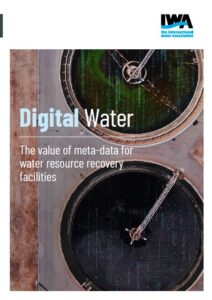Meta-data refers to descriptive information essential to convert large volumes of raw data into useful resources. With the advance of digitalisation in the water sector, it is fundamental to avoid data graveyards and, on the other hand, using collected data to address current and future problems. This white paper focuses on the crucial role that meta-data has in responding to future and possibly unpredictable challenges.
The aim of this document is to present the ‘meta-data challenge’ and to highlight the need to consider meta-data when collecting information as part of good digitalisation practices.
Report authors:
Daniel Aguado, Associate Professor, Institut Universitari d’Investigació d’Enginyeria de l’Aigua i Medi Ambient (IIAMA), Universitat Politècnica de València, València, Spain
Frank Blumensaat, Senior Research Fellow, ETH Zurich/Eawag, Institute of Environmental Engineering, Chair of Urban Water Management Systems, Zurich, Switzerland
Juan Antonio Baeza, Full Professor, Department of Chemical, Biological and Environmental Engineering, Universitat Autònoma de Barcelona, Cerdanyola del Vallès, Spain
Kris Villez, Sr. R&D Staff Member, Oak Ridge National Laboratory, Oak Ridge, TN, USA
María Victoria Ruano, Associate Professor, Chemical Engineering Department, Universitat de València, Burjassot, Spain
Oscar Samuelsson, Researcher, IVL Swedish Environmental Research Institute, Sweden
Queralt Plana, R&D Engineer, modelEAU, Université Laval, Québec, Canada

Image: Can we interpret the provided measurement equal to 42.0? We need to know a lot more to evaluate the information contained in sensor signals. The kind of descriptive data we need for interpretation is known as “meta-data” and includes the purpose of measurement, the measurement principle, the temporal and measurement resolution, sensor maintenance history, indicators of signal quality, and the spatial and temporal context of the measurement. © IWA 2021
This paper is a part of a series of white papers under the IWA Digital Water Programme, which aims to generate and share knowledge on digitalisation of the water industry. The Programme acts as a catalyst for innovation, knowledge and best practice; and provides a platform to share experiences and promote leadership in transitioning to digital water solutions. By sharing experiences on the drivers and pathways to digital transformation in the water industry, the programme is consolidating lessons and guidance for water utilities to start or continue to build their journey towards digitalisation.
Learn more about the IWA Digital Water Programme.


